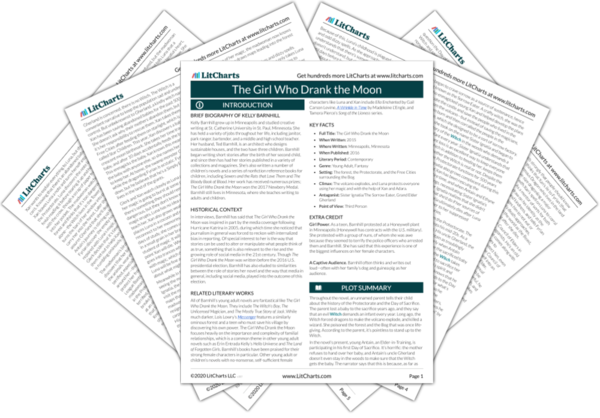The revelation that there is no witch who demands a sacrifice shows clearly that the Elders simply use the story and the Day of Sacrifice as a way to maintain control over the Protectorate. In other words, they rely on the power of storytelling to feed the population a tale designed to stoke their fears and make them sad, which in turn makes them less likely to ask questions. After all, they need to constantly be able to appease the Witch. Antain’s question and his youthful idealism suggest that questioning like this is something that, if Antain continues, has the power to change things.


